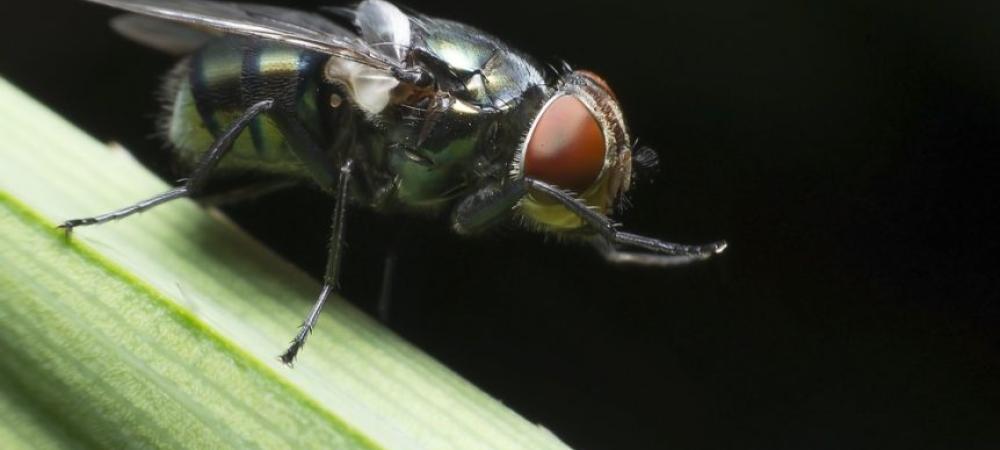Controlling Flies This Summer

In the vast world of insects, flies represent one of the most diverse and adaptable species groups. With over 120,000 known fly species worldwide, these insects have evolved to thrive in virtually every environment on Earth. According to the Smithsonian Institution, scientists estimate that there may be up to 1 million fly species yet to be discovered, highlighting the remarkable diversity of this insect order.
Life Cycle and Development
The average lifespan of a common housefly (Musca domestica) is approximately 21 days, though this can vary significantly depending on environmental conditions. During this brief life, flies undergo complete metamorphosis, transitioning through four distinct life stages:
- Egg (8-20 hours)
- Larva/Maggot (3-5 days)
- Pupa (3-6 days)
- Adult (15-25 days)
Research from the University of Kentucky's Department of Entomology indicates that female houseflies can lay up to 500 eggs in their lifetime, typically depositing them in clusters of 75-150 eggs at a time. This remarkable reproductive capacity explains why fly populations can explode so quickly under favorable conditions.
Understanding Fly Swarms and Their Preferred Locations
Fly swarms become particularly problematic during summer months, with several factors contributing to their prevalence:
Common Swarm Locations
- Waste management areas (garbage bins, dumpsters)
- Drain systems and disposal units
- Pet feeding and waste areas
- Composting sites
- Agricultural facilities
- Food processing areas
According to the World Health Organization (WHO), flies can transmit over 65 diseases to humans, making their control essential for public health. Studies have shown that a single fly can carry up to 6 million bacteria on its body.
Environmental Factors Contributing to Swarms
Temperature and moisture play crucial roles in fly population dynamics:
- Optimal breeding temperature: 75°F to 85°F (24°C to 29°C)
- Relative humidity preference: 60-70%
- Development time can decrease by up to 50% in optimal conditions
Summer-Active Fly Species
During summer months, several species become particularly active:
1. Houseflies (Musca domestica)
- Most common domestic fly species
- Can complete development cycle in as little as 7-10 days
- Capable of traveling up to 5 miles from breeding sites
- Associated with over 100 pathogen types
2. Blowflies (Calliphoridae family)
- Larger than houseflies
- Metallic blue or green coloration
- Complete development cycle in 10-14 days
- Attracted to decaying organic matter
3. Fruit Flies (Drosophila species)
- Particularly active in late summer
- Complete life cycle in 8-10 days
- Attracted to ripening fruits and fermentation
Prevention and Control Strategies
DIY Prevention Methods
- Maintain proper sanitation
- Regular garbage removal
- Prompt cleaning of spills and food debris
- Proper drainage system maintenance
- Physical barriers
- Install and maintain window screens
- Use door sweeps
- Seal entry points around utilities
- Environmental management
- Reduce moisture levels
- Maintain proper ventilation
- Regular cleaning of organic matter
Professional Pest Control Benefits
Expert intervention offers several advantages:
- Access to professional-grade treatments
- Comprehensive property assessment
- Targeted control strategies
- Long-term prevention planning
- Regular monitoring and follow-up
According to the National Pest Management Association (NPMA), professional pest control can reduce fly populations by up to 90% within the first treatment cycle, with sustained results through proper maintenance programs.
Seeking Professional Assistance
When fly infestations become overwhelming, professional pest control services provide the most effective solution. Look for providers who:
- Are licensed and certified
- Use integrated pest management (IPM) approaches
- Offer regular maintenance programs
- Provide detailed inspection reports
- Use environmentally responsible methods
For residents in the Greater Houston area, including Tomball, Cypress, and Spring, professional pest control services can provide comprehensive fly management solutions. Expert technicians can develop customized treatment plans based on specific infestation patterns and property characteristics.
Remember, early intervention is key to preventing major fly infestations. If you notice increasing fly activity around your property, don't wait for the problem to escalate before seeking professional assistance.